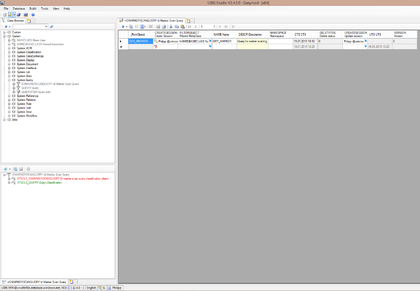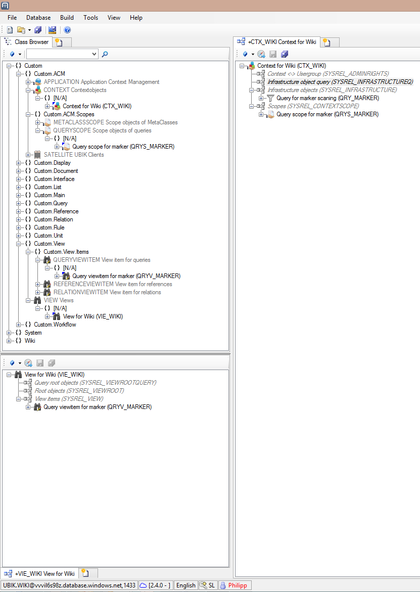Difference between revisions of "HowTo:Make an Object be found by Optical Codes"
| Line 7: | Line 7: | ||
# Add this new query to the list of [[infrastructure]] objects | # Add this new query to the list of [[infrastructure]] objects | ||
# Prepare and add a [[QUERYSCOPE]] to the [[ACM]] | # Prepare and add a [[QUERYSCOPE]] to the [[ACM]] | ||
| − | # Prepare and add a [[ | + | # Prepare and add a [[:Category:Views|View Item]] to the view set in the [[Context]] of the ACM<br/>[[File:UI_Marker_scaning02.png|420 px|border|alt=infrastructure|infrastructure]] |
'''Preparing the object''' | '''Preparing the object''' | ||
Revision as of 11:13, 26 January 2015
Loading a list of objects identified via a Barcode or QR-Code on the UBIKCLIENT implies that the object and search mechanism is configured and used accordingly.
Server
Preparing a Scan-Query
- Create a new Query classified as SYSCLS IDMARKERSCANQUERY
- Set the according filter object (FILTEROBJECT) similar as for other queries (e.g. Create a new Query)

- Add this new query to the list of Infrastructure objects
- Prepare and add a QUERYSCOPE to the ACM
- Prepare and add a View Item to the view set in the Context of the ACM

Preparing the object
- Classify the object's MetaClass as SYSCLS ID MARKER QUERY and implement the necessary properties

- Enter the value of the Barcode, QR-Code or the Marker ID in the property
Mobile Client
- Start the QR-Code activity if you want to load an object via Barcode or QR-Code
- After scanning a known code the client tries to fetch the objects, identified by this code
